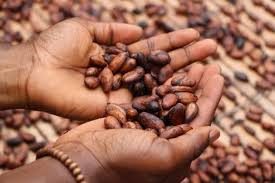
German-funded coffee project kicks off in Kirinyaga » Capital News
KIRINYAGA, Kenya, Jun 21 – Farmers under the Inoi Cooperative Society in Kirinyaga County are set to benefit from a three-year project seeking to promote climate-smart practices.
The project dubbed “Brewing the Future: Coffee to Stay” is funded by German coffee buyer Tchibo in partnership with the Mount Kenya Sustainable Landscape and Livelihoods Program (MSuLLi), led by the Rainforest Alliance.
The project will tackle challenges in the coffee sector by promoting regenerative agricultural practices, enhancing coffee yields and quality, and boosting the resilience of smallholder farmers against climate change.
It also emphasizes the inclusion of women and youth in the coffee value chain.
Marion Ng’ang’a, Country Director of the Rainforest Alliance, said the initiative targets about 5,000 farmers in Inoi to foster environmental conservation and improve livelihoods.
“We’re implementing the project through three main pathways: adopting climate-smart practices, strengthening coffee productivity and quality, and integrating women and youth through diversified farming activities,” Ng’ang’a said during the project’s launch at Inoi Coffee Factory in Kerugoya.
Mt Kenya conservation
She added that the program also promotes conservation of the Mount Kenya ecosystem, a major water tower, and highlights the importance of biodiversity, which she said is essential for the future of coffee farming.
“We will promote agroforestry using high-value, multipurpose trees recommended by the Coffee Research Institute. Farmers will also receive training and support for soil testing to apply fertilizers and organic manure based on actual nutrient needs,” she noted.
Karugu Macharia, from the Mount Kenya Landscape Management Board, emphasized agroforestry as a key component, citing the benefits of integrating macadamia, avocados, and indigenous trees, which provide shade and organic matter during dry seasons.
Felix Mwai, Chairperson of Inoi Farmers Cooperative Society, welcomed the project, noting that the training and interventions will be transformative.
“We currently produce 630,000 kilograms annually, but with this support, we aim to raise that to 2.2 million kilograms,” Mwai said.